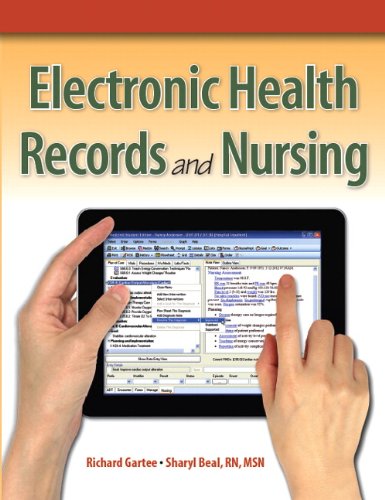Description
Electronic Health Records And Nursing by Gartee & beal – Test Bank
Gartee, Electronic Health Records and Nursing, 1e
Chapter 1
Question 1
Type: MCSA
Which entity first identified capturing data at the point of care as a key criterion for an EHR?
1. Health Insurance Portability and Accountability Act (HIPAA)
2. Institute of Medicine (IOM)
3. Computer-based Patient Record Institute (CPRI)
4. Health Information Technology for Economic and Clinical Health (HITECH) Act
Correct Answer: 3
Rationale 1: The HIPAA Security Rule did not define an EHR but established protection for all personally identifiable health information stored in electronic format
Rationale 2: the IOM report put forth a set of eight core functions that an EHR should be capable of performing
Rationale 3: CPRI was an early contributor to EHR systems, and identified three key criteria for EHR, including capturing data at the point of care, integrating data from multiple sources and providing decision support
Rationale 4: HITECH Act promotes the widespread adoption of EHR and authorizes Medicare incentive payments to doctors and hospitals using a certified EHR
Global Rationale:
Cognitive Level: Understanding
Client Need: Safe Effective Care Environment
Client Need Sub:
Nursing/Integrated Concepts: Nursing Process: Assessment
Learning Outcome:
Question 2
Type: MCSA
Which of the following is the best definition of electronic health records?
1. Any information that relates to the past, present, or future physical condition of a person that is stored in an electronic format.
2. The portions of a client’s medical records that are stored in a computer system as well as the functional benefits derived from having an electronic health record.
3. Client information that is stored electronically and may be accessed by both the client and the client’s healthcare providers on demand.
4. Any healthcare information that is stored by computer.
Correct Answer: 2
Rationale 1: This definition is not the broadest; the EHR is not just what is stored, but what can be done with it
Rationale 2: The IOM and CPRI suggest that the EHR is not just what is stored, but the functional benefits derived from having an electronic health record
Rationale 3: This definition is limited
Rationale 4: This definition is limited
Global Rationale:
Cognitive Level: Understanding
Client Need: Safe Effective Care Environment
Client Need Sub:
Nursing/Integrated Concepts: Nursing Process: Assessment
Learning Outcome:
Question 3
Type: MCSA
The ONC developed which of the following strategies to meet their goal of informing clinical practice?
1. Fostering regional collaborations
2. Encouraging use of PHR
3. Accelerating research and dissemination of evidence
4. Promoting EHR diffusion in rural and underserved areas
Correct Answer: 4
Rationale 1: Fostering regional collaborations is part of the ONC goal of interconnecting clinicians
Rationale 2: Encouraging the use of PHR is part of the ONC goal of personalizing care
Rationale 3: In an effort to improve population health, one of the ONC strategies is to accelerate research and disseminate evidence
Rationale 4: As part of the goal of informing clinical practice, the ONC strategies include promoting EHR diffusion in rural and underserved areas, incentivizing EHR adoption, and reducing the risk of EHR clinicians who purchase EHR
Global Rationale:
Cognitive Level: Understanding
Client Need: Safe Effective Care Environment
Client Need Sub:
Nursing/Integrated Concepts: Nursing Process: Planning
Learning Outcome:
Question 4
Type: MCSA
Why would a small primary care practice need to know about the HITECH Act?
1. Because it makes funding available to help the practice implement a certified EHR
2. Because it will reduce Medicare payments by five percent if the use of paper charts continue to be used in 2013
3. Because it offers financial incentives for implementing an EHR before 2015
4. Because it requires medical practices to offer telemedicine to clients by 2020
Correct Answer: 3
Rationale 1: Financial incentives will be offered, as well as penalties; funding is not part of the HITECH act
Rationale 2: After 2020, a provider still using paper charts will have payments reduced by 5 percent
Rationale 3: Providers that implement and have meaningful use of a certified EHR prior to 2015 are eligible for incentives
Rationale 4: Telemedicine is not part of the HITECH Act
Global Rationale:
Cognitive Level: Understanding
Client Need: Safe Effective Care Environment
Client Need Sub:
Nursing/Integrated Concepts: Nursing Process: Implementation
Learning Outcome:
Question 5
Type: MCSA
Which of the following is not one of the IOM criteria for EHRs?
1. Connectivity between multiple care providers
2. Management of administrative processes and reporting
3. Statistical collection and reporting related to population health
4. Capture data at the point of care
Correct Answer: 4
Rationale 1: Electronic communication among care partners can enhance client safety
Rationale 2: Electronic scheduling and reporting tools increase the efficiency of healthcare organizations and provide better, timelier service to clients
Rationale 3: Public and private sector reporting requirements at the federal, state, and local levels for client safety and quality are more easily met with computerized data
Rationale 4: The Computer-based Client Record Institute identified capturing data at the point of care as a key criteria for an EHR
Global Rationale:
Cognitive Level: Understanding
Client Need: Safe Effective Care Environment
Client Need Sub:
Nursing/Integrated Concepts: Nursing Process: Assessment
Learning Outcome:
Question 6
Type: MCSA
The nurse reviews the client registration form, and asks for more detail about the chief complaint, which is:





Be the first to review “Electronic Health Records And Nursing by Gartee & beal – Test Bank”